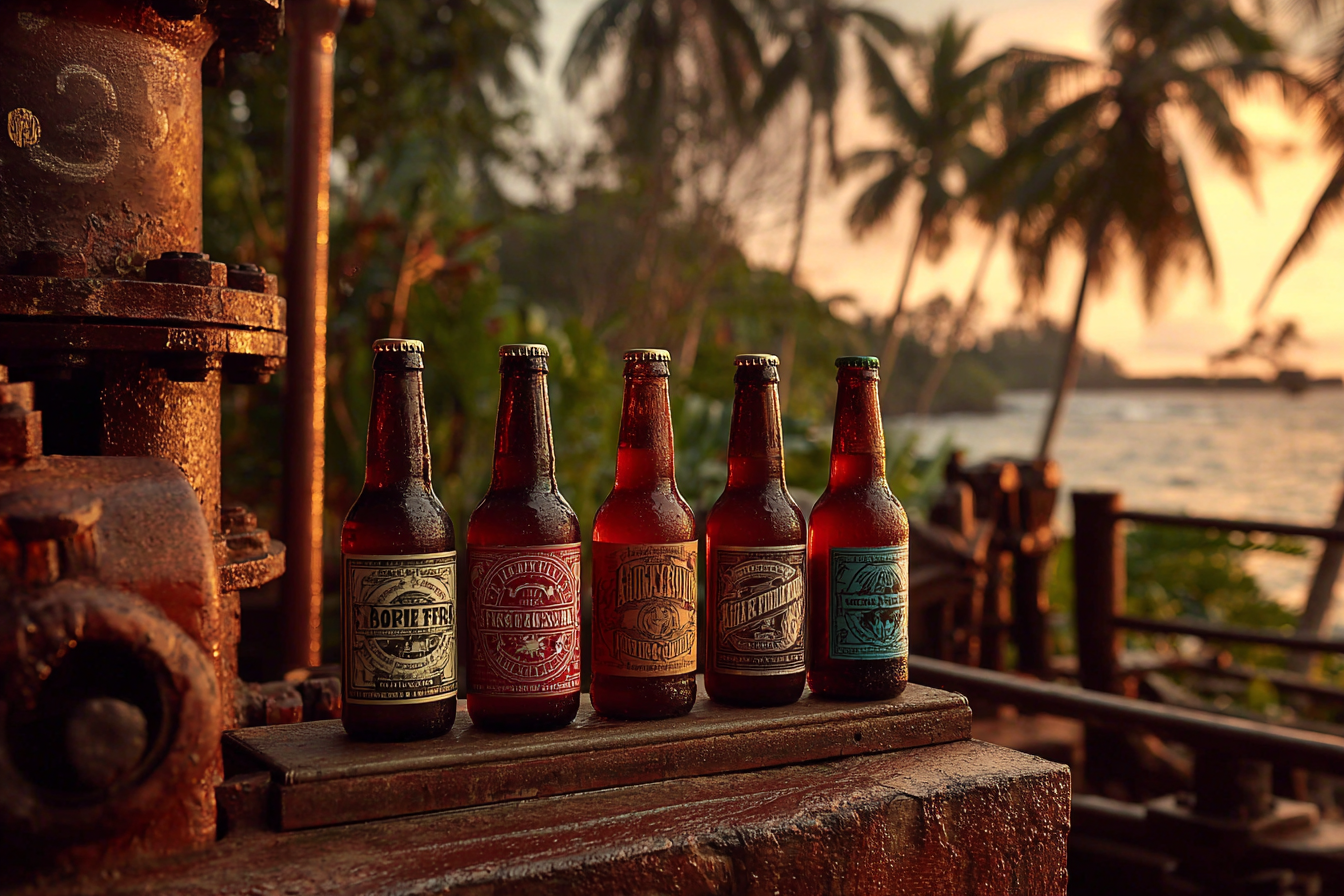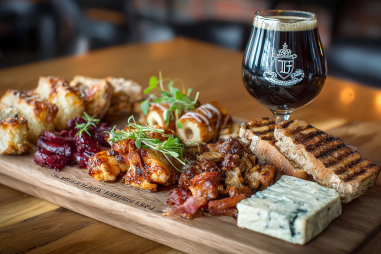Tropical stout is a unique and flavorful beer style with roots that stretch back centuries. Known for its rich, robust taste combined with adaptations that make it perfect for warm, humid environments, tropical stout offers more than just a beverage—it tells a story of cultural exchange, innovation, and tradition. This article delves into the intriguing history of tropical stout, tracing its origins from early stout beer styles, its special modifications for tropical climates, and its journey through Caribbean and African brewing landscapes. Join us on this flavorful journey to uncover how tropical stout evolved and why it remains a beloved brew across the globe today.
Early Origins of Stout Beer Styles
To understand tropical stout, it’s important to start with the broader backdrop of stout beer. Stout is a dark beer known primarily for its rich malt character, generally brewed with roasted barley that imparts deep flavors of coffee, chocolate, and sometimes caramel. The term “stout” originally referred to a strong beer, often linked with porter—a dark, almost black style originating in London in the early 18th century.
Porters gained immense popularity among laborers and sailors for their robustness and filling quality. Over time, variations emerged, with stouts standing out due to their higher strength and fuller body. These early stout beers were predominantly crafted in England and Scotland and became staples in colder climates where their warmth and richness were highly appreciated. However, it wasn’t long before the style found its way to many other parts of the world.
Adaptations for Tropical Climates
Transporting stout beer to tropical regions posed significant challenges. The hot and humid climate impacted both the brewing process and the beer’s shelf life. Traditional stouts brewed in cooler climates often did not hold up well when exposed to tropical temperatures during distribution and storage. Brewers in tropical areas began to adapt stout recipes to suit these conditions.
Tropical stouts generally feature a slightly lower alcohol content compared to their northern counterparts and employ brewing techniques that enhance stability and flavor retention in warm weather. Ingredients were sometimes adjusted, with some brewers using adjuncts like sorghum or maize to lighten the body without losing the distinct roasted character. These adaptations helped create a stout that not only survived but thrived in tropical environments, maintaining its rich flavor while being refreshingly drinkable.
Development in Caribbean and African Regions
The Caribbean and African regions played a central role in the evolution of tropical stout. These areas became hubs where traditional European brewing methods intersected with local tastes, ingredients, and climatic challenges. In the Caribbean, for example, stout was embraced due to its bold flavor profile and ability to withstand shipping conditions.
Similarly, in West Africa, stout became immensely popular, particularly in countries like Nigeria and Ghana, where it is often consumed alongside hearty meals. African tropical stouts are known for their slight sweetness and smooth body, which cater well to local palates. Some breweries incorporate indigenous ingredients or slight variations in malt roasting to personalize their stouts.
This cross-pollination of styles between Caribbean and African brewers helped establish the tropical stout as a distinctive category, celebrating both heritage and innovation.
Impact of Colonization and Global Trade
The spread of stout beers, including tropical stout, is deeply entwined with the history of colonization and global trade networks. European colonial powers like the British introduced beer brewing techniques to their colonies, both for local consumption and export purposes. Ports across the Caribbean and Africa became access points for European goods, including beer.
Colonization not only transported brewing knowledge but also facilitated the exchange of ingredients and flavors. Beer styles were often adapted to appeal to local consumers or to endure the long voyages and tropical climate. As trade routes expanded, tropical stout gained wider distribution, making it a popular choice in many tropical regions and even abroad among expatriates and colonial administrators.
While colonization brought opportunities, it also imposed limitations on local brewers, who had to negotiate their cultural identity within imposed European brewing traditions. Despite these challenges, the tropical stout emerged resiliently as a marker of cultural adaptation and brewing ingenuity.
Evolution in Brewing Techniques
Over time, the brewing techniques for tropical stout evolved significantly. Early producers relied heavily on traditional English methods, but brewers in tropical regions began to experiment to perfect their recipes. This included adjusting mashing schedules to improve fermentability and stability, tweaking hop varieties for better preservation, and reducing the beer’s viscosity to make it easier to drink in heat.
Modern brewing technologies have further enhanced tropical stout production. Advances in raw material quality control, fermentation control, and packaging allow tropical stouts to maintain their flavor profile and quality over longer shelf lives, even in challenging climates.
Moreover, microbreweries and craft brewers have introduced innovative recipes using non-traditional ingredients like spices, local fruits, or unique yeasts, pushing the boundaries of what tropical stout can offer.
Influence on Modern Craft Brewing
The rise of craft brewing worldwide has brought a renewed interest in traditional beer styles, including tropical stout. Craft brewers appreciate the complexity and heritage embedded in these beers and often use the style as a canvas for creativity.
In tropical countries themselves, craft breweries produce tropical stouts that pay homage to their heritage while showcasing contemporary brewing artistry. These beers often emphasize local ingredients, environmental sustainability, and experimental flavors, such as cacao, coffee blends, or indigenous spices.
Internationally, craft brewers have also been inspired by the tropical stout’s robust yet drinkable profile, leading to collaborations, limited releases, and reinterpretations that bring this once niche style to a global audience. The tropical stout, with its rich history and adaptable soul, bridges traditional and modern brewing culture beautifully.
Notable Breweries Shaping the Style
Several breweries have been instrumental in shaping and popularizing tropical stout around the world. Some of these key players include:
- Guinness Nigeria: A pioneer in making tropical stout famous in West Africa, Guinness Nigeria blends the classic Irish stout with modifications suited to Nigerian tastes and climate.
- Dragon Stout by Guinness Caribbean: Launched in Jamaica, this beer combines rich malt flavors with subtle sweetness and a slightly higher alcohol content, making it a quintessential Caribbean tropical stout.
- Desperados Brewery: Based in Africa, known for balancing traditional stout elements with modern brewing techniques and innovative flavors.
- Local craft breweries: Numerous smaller craft breweries across the Caribbean and Africa have embraced tropical stout, making significant contributions through experimental versions that celebrate local flavors and brewing innovation.
These breweries not only honor the history of tropical stout but also drive its evolution, ensuring the style remains relevant and exciting for new generations of beer lovers.
The Cultural and Historical Significance of Tropical Stout
Tropical stout is more than just a beer—it is a cultural icon that represents the blending of traditions, climates, and communities. Its history mirrors the complex interactions of colonization, migration, and adaptation to challenging environments. In regions where tropical stout is most beloved, it symbolizes resilience, community, and shared enjoyment.
Drinking tropical stout connects beer enthusiasts to a rich history of brewing innovation and cultural exchange. It also serves as a reminder of the global nature of beer as a social lubricant, evolving across continents to suit the tastes and needs of diverse populations.
Whether sipped on a warm Caribbean evening or paired with a festive African meal, tropical stout continues to enchant with its deep flavors and storied past, offering an enduring testament to the ingenuity and spirit of the brewers and drinkers who shaped it.







